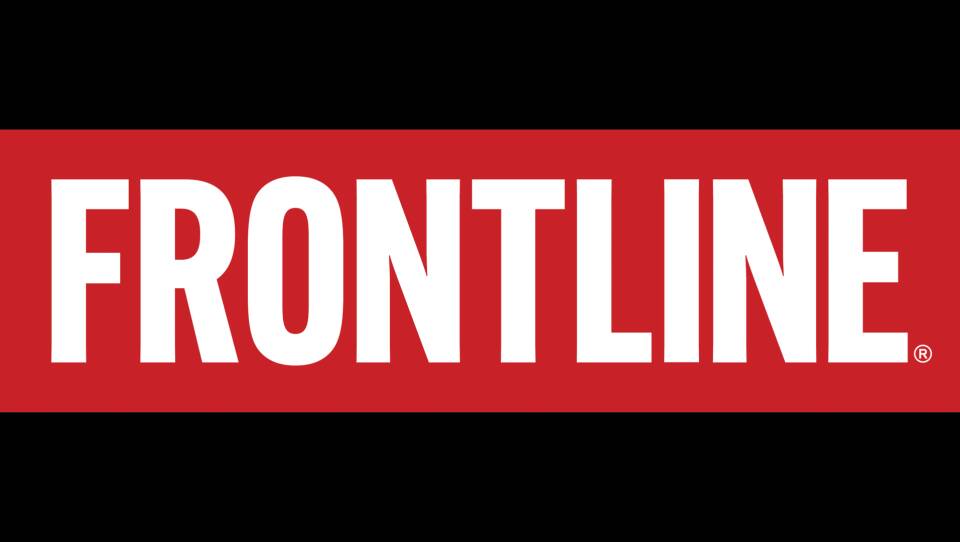Four decades ago, the internet was born but most people had never heard of it. That same year FRONTLINE debuted with The Unauthorized History of the NFL, the first of nearly 800 investigations that would hold powerful people, companies, institutions and systems to account.
Since then, the internet and the entire media ecosystem have undergone seismic shifts. But FRONTLINE’s core mission endures. “The importance of FRONTLINE’s mission has only grown,” said Raney Aronson-Rath, FRONTLINE editor-in-chief and executive producer. “In this time of tumult and threats to democracy around the world, the need for thoughtful and trustworthy accountability and investigative journalism is immense.”
FRONTLINE is America’s longest running investigative documentary series on television and has won all the major awards for broadcast journalism, including 104 Emmys and 28 George Foster Peabody Awards.
In the 32 years during which FRONTLINE founder David Fanning led and executive produced the series, films fearlessly probed everything from the genocide in Rwanda to the U.S. government’s war on drugs, to our changing climate and the wars in Afghanistan and Iraq. FRONTLINE's documentaries freed innocent people from prison, sparked a U.N. resolution on toxic waste dumping, spurred indictments and prompted legislation to protect female farmworkers from sexual abuse.
Aronson-Rath took over in 2015 and continues to hold FRONTLINE to a rigorous standard of journalistic fairness. “The premise of all of our work is to always be reporting against our own assumptions,” said Aronson-Rath. “Many times, we’ve come to a conclusion, but we keep asking questions. That always brings us to a more nuanced story— one that has more meaning and impact.”
Aronson-Rath started honing her investigative skills as a member of the Chelsea High School debate team in rural Washington, Vt. “Being a successful debater meant you had to be open to all the sides of a story and wrestle so many different angles of an idea. I relished that dialogue and challenge. It’s what led me to journalism and to think about the big ideas of our times,” she said. After attending the University of Wisconsin-Madison, she lived in Taiwan for three years and was a journalist for The China Post and then went on to attend Columbia Journalism School.
Just as FRONTLINE is committed to holding institutions and officials accountable, the journalists hold themselves to the same standard, says Aronson-Rath. The team has posted transcripts of interviews for years and in 2017 launched the FRONTLINE Transparency Project, which shares full-length video interviews that are edited for legal and factual issues, and are searchable and sharable. Those have been viewed more than 10 million times.
FRONTLINE was always ahead of its time, she said. “David Fanning was really prescient in understanding that we needed to have FRONTLINE on all platforms at all times.“ FRONTLINE first offered streaming documentaries in 1995. Netflix didn’t start streaming until 2007, and YouTube didn’t even exist until 2005.
FRONTLINE is still breaking new ground and achieving “firsts,” with its journalism being experienced across more platforms and in more places than ever before. Its YouTube channel has nearly two million subscribers and around 450 million views. The podcast “The FRONTLINE Dispatch” has been downloaded seven million times. Un(re)solved, its multiplatform, interactive investigation of an effort to grapple with America’s history of racist killings, won the Outstanding Interactive Media: Innovation Emmy Award in 2022.
Viewers can look forward to continuing innovation, she said, including expanding work with GBH Education to develop educational resources for PBS LearningMedia. “My biggest passion right now is to reach young people so that their media literacy develops,” she said. “It’s so important that their understanding of the world grows amid this whole digital soup that they all swim in.” FRONTLINE has been dedicated to increasing diversity and equity in investigative documentary filmmaking and to bolstering investigative journalism at the local level. The FRONTLINE/Firelight Investigative Journalism Fellows program supports independent filmmakers of color and the Local Journalism Initiative provides comprehensive support to five reporting teams in five U.S. states with limited or dwindling access to news and information. The new Investigative Journalist Equity Initiative supports mid-career journalists from underrepresented communities who are interested in investigative long-form documentary storytelling.
“My biggest emphasis has been to diversify who tells FRONTLINE stories. Who is on camera? Who’s behind the camera? Who is the director?” said Aronson-Rath. “I am dedicated to making sure those people reflect who and what America is.”



